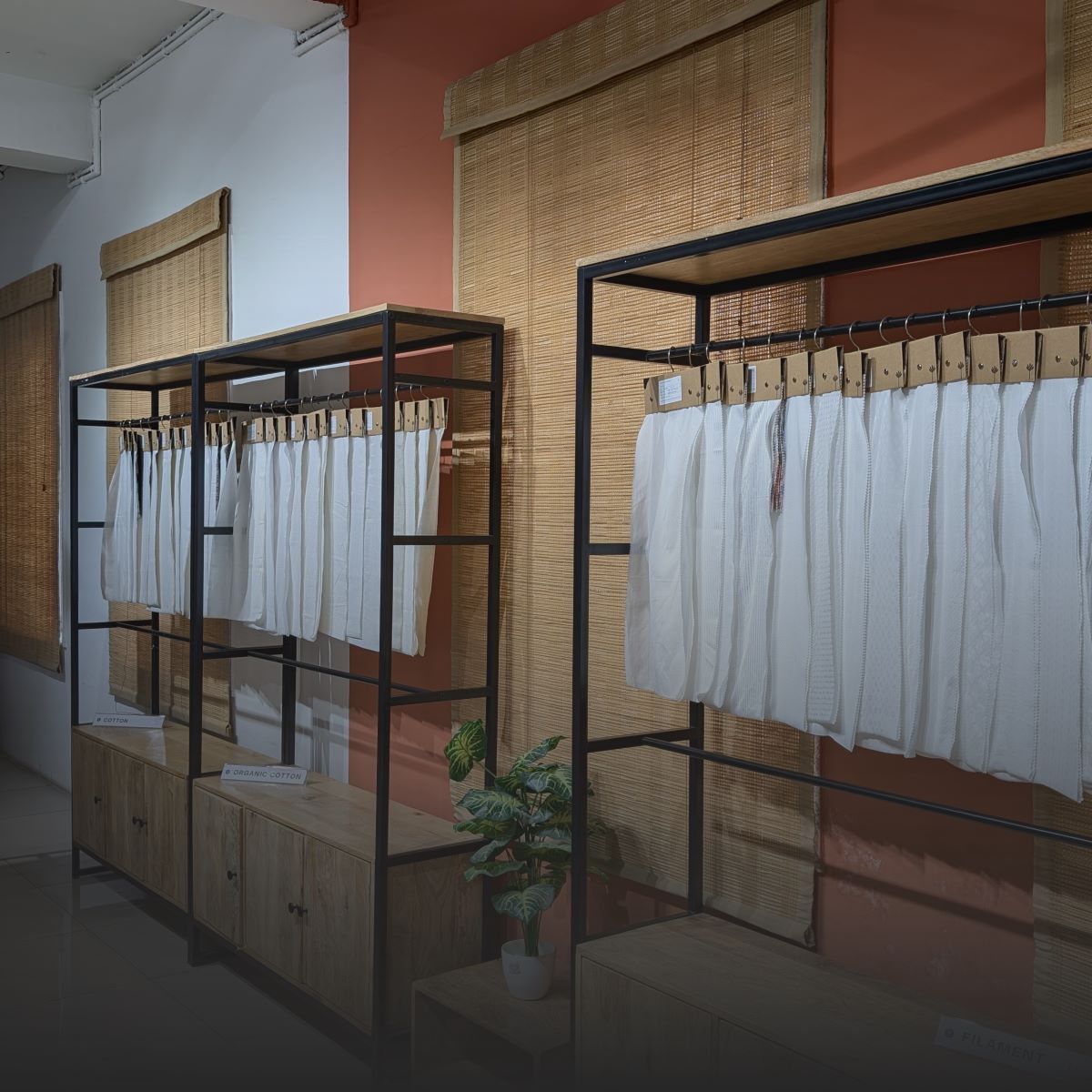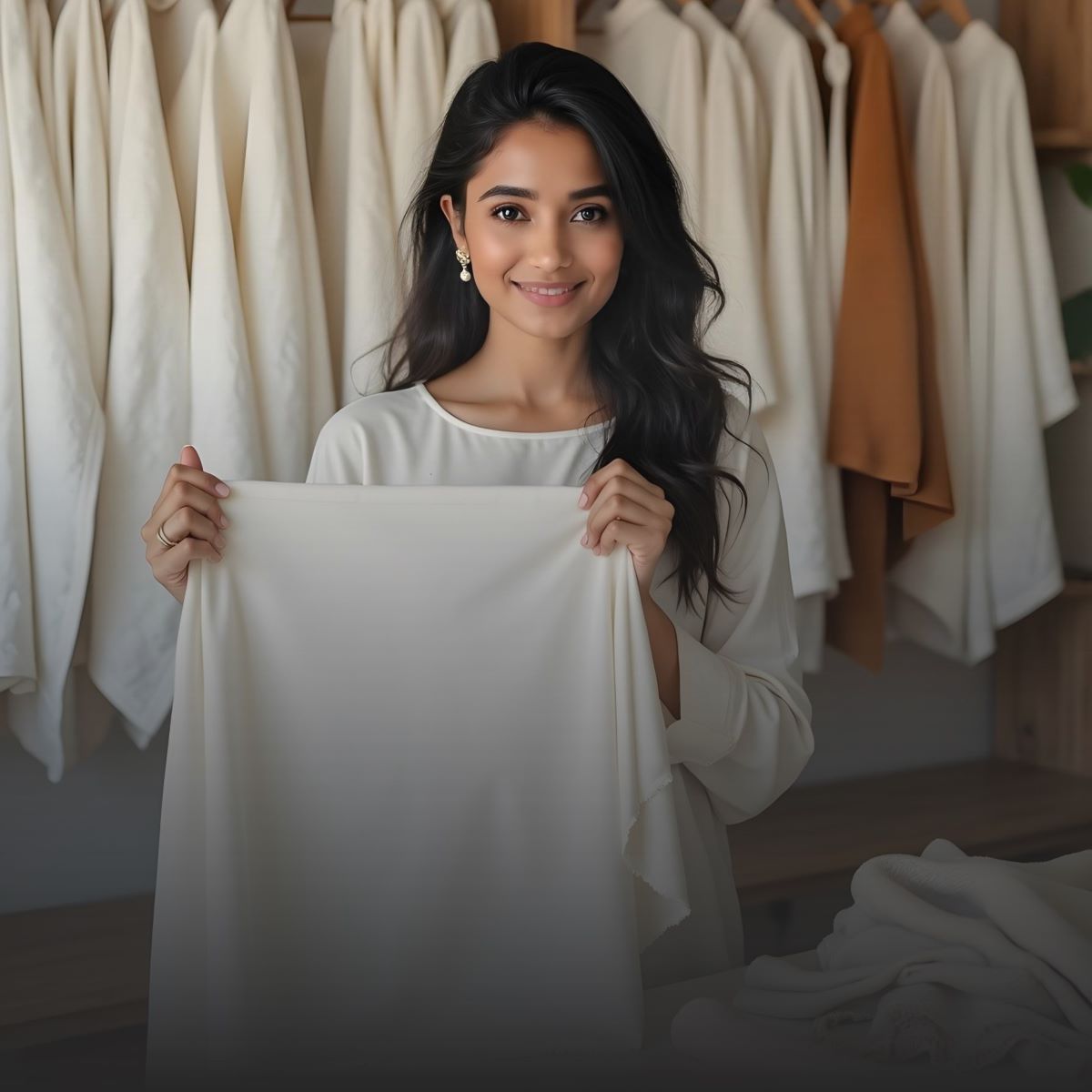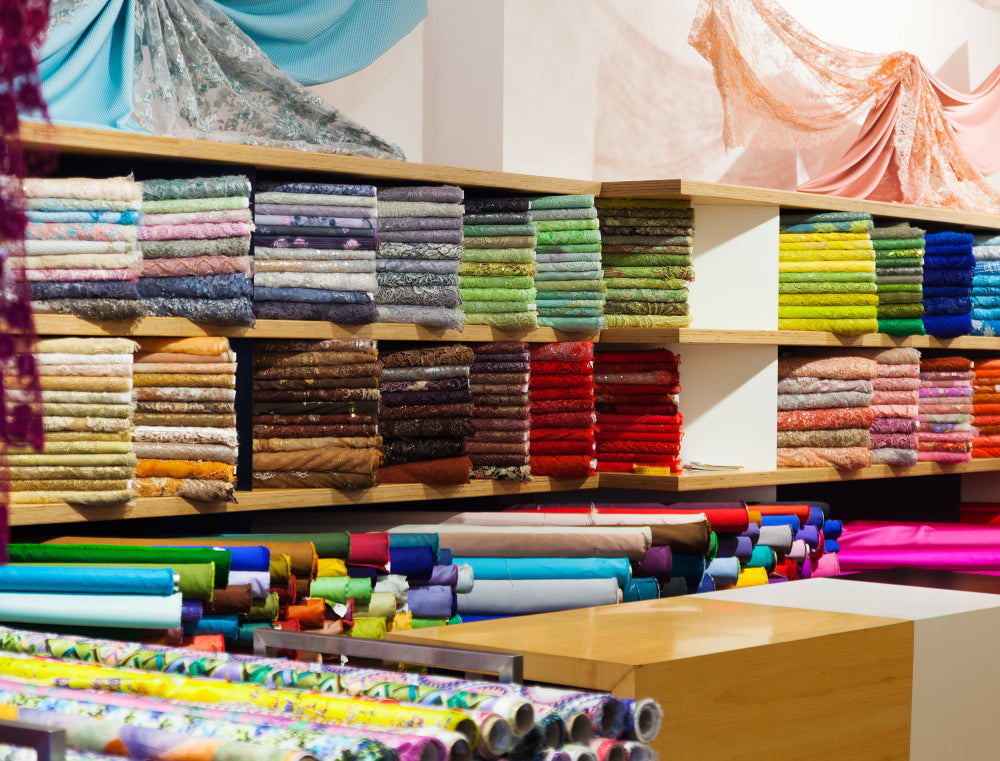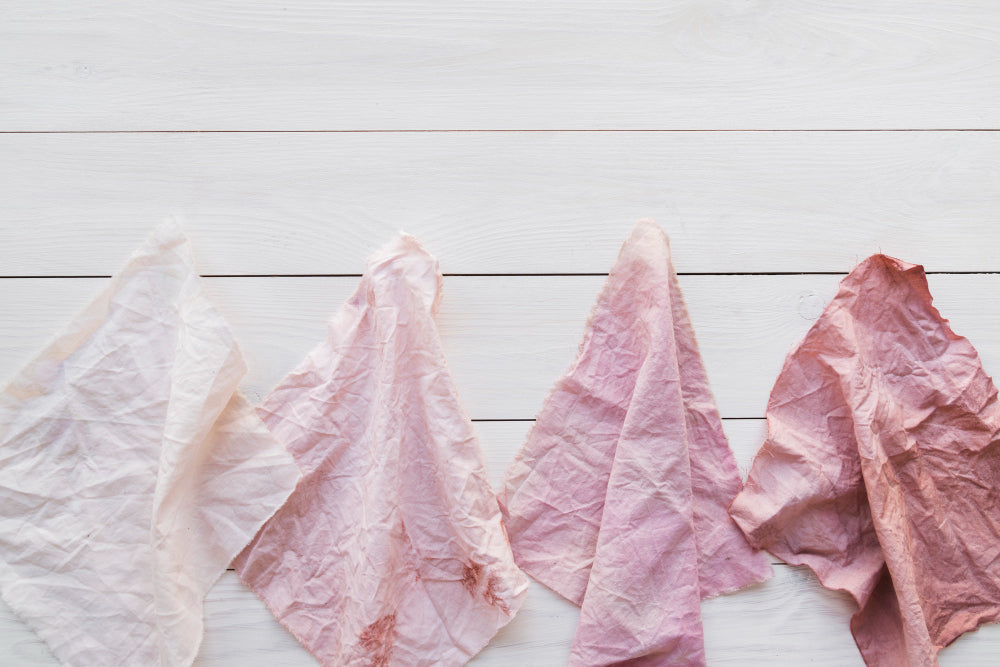In the fast-moving fashion industry, where sustainability, customization, and quick delivery are changing demand, garment manufacturers can grow by forming strategic brand partnerships. These collaborations go beyond order fulfilment; they focus on value, drive innovation, and are based on long-term business alignment through B2B fashion partnerships.
For success, B2B clothing manufacturers should aim to build trusted partnerships instead of just transactional relationships. Specializing in low-MOQ production, private label development, or sustainable textiles can help you build brand connections that expand your market reach and operational scale.
In this in-depth guide, you'll learn:
- Importance of brand-manufacturer partnerships in B2B.
- Ways to create lasting, profitable partnerships with fashion brands.
- Successful collaborations in the industry.
- Steps to grow your garment manufacturing business.
- Easy tips to promote your business worldwide.

Why Fashion Brand Partnerships Matter For B2B Clothing Manufacturers
Today, garment manufacturers must form strategic partnerships with fashion brands to grow their businesses sustainably. These collaborations offer many benefits, from maintaining year-round production schedules to enhancing a brand's credibility in the global B2B fashion market.
1. Steady Revenue from Recurring Orders
Fashion brands usually have schedules for spring/summer, fall/winter, capsule drops, and limited edition collections. When you become their preferred manufacturing partner, your factory will have a steady flow of cash, better planning for raw materials, and a stable workforce.
If you're a low MOQ clothing manufacturer, you can attract small and new brands that want quality and flexibility. Larger units can also secure regular wholesale or export contracts. This dependability is important for the long-term success of the business.
2. Enhanced Market Credibility and Exposure
When you work for a well-known or quickly growing label, it makes you look like a reliable and skilled private label clothing manufacturer. These partnerships help your reputation and bring in enquiries from other brands looking for similar solutions.
Your B2B visibility in the fashion world can grow through social media mentions, product tags, press releases, or even co-branded packaging. This can help you attract new clients and negotiate better deals.
3. Access to Consumer Trends and Innovation
Fashion brands spend a lot of money on market research and trend analysis. As their production partner, you can get it before anyone else:
- Seasonal mood boards and design briefs.
- Material innovation requests (e.g., hemp, TENCEL™, recycled blends).
- Updates on sizing, silhouettes, and finishes.
This insider information helps custom clothing manufacturers stay flexible and make smarter prototypes that are ready for the market without having to guess.

4. Operational Scalability and Efficiency
When you Partner with fashion brands, you get repeat business. This gives you the confidence to invest money in growing your business by using automation, skilled workers, better facilities, and more space. Costs per unit go down when you buy more, so you can make more money without lowering the quality.
Long-term brand tie-ups lead to better vendor relationships, more efficient batch planning, and a more stable workforce.
5. Opportunity to Lead in Ethical and Sustainable Manufacturing
As sustainability becomes a must-have in fashion, brands are actively seeking ethical production units. If your facility provides organic cotton fabric, zero-waste cutting, or waterless dyeing, brand partnerships enable you to showcase these practices in action.
This distinguishes you not only as a manufacturer but also as a forward-thinking, purpose-driven sustainable clothing production company that aligns with next-generation consumer values.
Also Read: Which Companies Offer Wholesale Fabric Supply with Quality Assurance
How To Build Long-Term B2B Relationships With Fashion Brands
Winning a client is only half of the battle. The real challenge—and opportunity—is to develop that relationship into a partnership based on trust, responsiveness, and mutual growth. The procedure is as follows: B2B clothing manufacturers, how to work with fashion brands:
1. Offer Customisation and Flexibility
Fashion loves things that are different. Give brands these things:
- Customized digital printing, tie-dye, or eco-friendly dying methods.
- MOQs that are easy to change, especially for test runs or capsules.
- Access to a range of fabric blends and building styles.
You are different from generic bulk manufacturers because you can customize. This is especially true for niche, luxury, or eco-friendly direct-to-consumer labels.
2. Prioritise Transparent, Proactive Communication
Communication is what holds all business-to-business relationships together. Use tools like these to give real-time updates:
- Google Sheets or Asana boards that everyone can see.
- Email reports every week.
- You can use Slack or WhatsApp for instant messaging.
Communicating ahead of time keeps your client informed and avoids surprises. It also makes them feel valued throughout the whole process.

3. Establish Robust Quality Control Systems
One big reason fashion brands switch suppliers is that the quality isn't always the same. Get a good name for dependability by:
- Performing three levels of inspections: pre-production, in-line, and final.
- Keeping track of certifications and test reports.
- Making sure that each batch meets the tolerances that were agreed upon.
As a wholesale garment manufacturing for brands, this builds trust over time and lets higher prices stand.
4. Provide Value-Added Services
Don't just sew things. Send it:
- Making samples and prototypes.
- Help with making and grading tech packs.
- Fabric sourcing help based on budget and trends.
With these extras, you become more than just a vendor; you become a strategic custom clothing manufacturing partner.
5. Lead with Ethical Manufacturing Certifications
Brands are increasingly asking for certifications like GOTS, OEKO-TEX, WRAP, and SEDEX. Show them off with pride and talk about how your processes support fair trade, safe working conditions, and production with little impact.
This helps you become more trustworthy in high-end and international markets.
6. Stay Agile and Trend-Responsive
Trends come and go. Overnight, TikTok trends, influencer drops, or viral products can change what people want. Set up flexible production lines, keep workers on call, and keep materials on hand so you can take advantage of opportunities that come up quickly.
Also Read: How to Incorporate Sustainable Cellulose Fabrics into Your Designs?
Examples of Successful Brand-Manufacturer Collaborations
Let's look at four well-known examples of B2B fashion partnerships that helped both the brand and the factory:
1. H&M & Artisan Textile Revival with Tangail-Inspired Initiatives
H&M works globally with local artisans on heritage textiles through visible collaborations. Their collaboration with Indian designer Sabyasachi highlighted handwoven techniques and heritage craftsmanship in sarees and bohemian styles. This model shows the brand's efforts, such as those in Bangladesh's Tangail region, to support rural weavers by providing global exposure and fair wages.
🔗 Read more: H&M x Sabyasachi Collaboration
2. Zara's Local Manufacturing Ecosystem for Fast Fashion
Zara is known for its quick market response, thanks to its strong connections with local manufacturers, particularly in Spain and Portugal. Zara's strategy lets it react to trends in weeks, helping manufacturers with steady work and better integration into fast fashion. 🔗 Source: Zara's Just-in-Time Model – Logistics Insider

3. Patagonia's Circular Textile Collaborations
Patagonia leads in sustainable apparel by partnering with suppliers of circular textiles like recycled PET bottles, organic cotton, and low-impact dyes. Their sustainability page lists partnerships with mills and manufacturers that follow regenerative and ethical practices. B2B relationships show that sustainability and scalability can work together.
🔗 Explore Patagonia's ethical manufacturing: Patagonia's Factory & Mill Partners
4. Nike & Flyknit: Innovation Through Manufacturer Collaboration
Nike's Flyknit technology came from years of research and development with expert knitting factories. This partnership created a lightweight, snug shoe that cut waste by 60% compared to standard methods. Harvard Business School highlighted Flyknit as a case study on sustainable innovation and tech advancements by manufacturers.
🔗 Reference: Nike's Sustainable Innovation – Harvard D^3
Takeaway
These examples show a key point: fashion brand collaborations provide not only volume but also mutual evolution, innovation, and long-term success. Brand-manufacturer partnerships succeed with trust, shared values, and common goals, whether in cultural heritage (H&M), agile manufacturing (Zara), sustainability (Patagonia), or performance (Nike).
Actionable Steps To Grow Your B2B Clothing Manufacturing Business
Follow these steps if you're a manufacturer who wants to grow your business-to-business (B2B) presence and get partners with fashion brands:
1. Research and Shortlist Ideal Brand Clients
Focus on:
- Direct-to-consumer brands
- Ethical and sustainable labels
- Emerging fashion startups
Look for similar values, such as low MOQ requirements, eco-friendly sourcing, or new design ideas.
2. Build a Strong Portfolio
Include:
- Clear photos of past samples
- MOQ options
- Customization capabilities
- List of certifications and facilities
- Testimonials or case studies, if available
3. Register on B2B Marketplaces
List your company on:
- Foursource
- MakersRow
- Fibre2Fashion
- IndiaMART (if sourcing support is required)
These platforms make you more visible and help you get leads.
4. Attend Industry Trade Shows & Expos
Participate in events like:
- MAGIC Las Vegas
- Texworld
- Sourcing at MAGIC
People who run fashion brands, people in charge of sourcing, and business-to-business buyers can all be found at trade shows.
5. Market Your Services Smartly
Use SEO and reach out. For example:
- Blog: How to Find the Right Custom Clothing Manufacturer for Your Brand.
- Email: We specialize in low MOQ, certified, sustainable manufacturing for fashion startups. Sampling in 7 days.
- LinkedIn: Share behind-the-scenes content and client success stories.

Final Thoughts: The Future Belongs To Collaborative Manufacturers
In the new era of fashion, garment manufacturers B2B that understand, support, and grow with fashion brands will thrive. Whether you're just getting started or are an established unit, your future depends on:
- Transparent, flexible communication.
- High product quality.
- Ethical, sustainable practices.
- Innovation and adaptability.
Strong fashion brands don't just work with makers. They grow with partners who understand their challenges.
Start investing in brand relationships right now, and your factory will become a growth engine for the fashion economy of tomorrow.
FAQs
1. How Can Garment Manufacturers Start B2B Partnerships With Fashion Brands?
For B2B fashion partnerships to begin, clothing companies should find fashion brands that share their values, such as a commitment to sustainability, low minimum order quantities (MOQs), or design freedom. As a first step, it's helpful to build a strong portfolio, sign up for B2B sourcing platforms like Foursource or Fibre2Fashion, and go to trade shows.
2. Why Are Brand Collaborations Important For B2B Growth In Garment Manufacturing?
Strategic fashion brand collaboration brings steady orders, exposure in the industry, and the chance to see what trends will happen in the future. These partnerships help with scaling garment manufacturing through B2B, making more money, and building relationships with trustworthy customers that will last for a long time.
3. What Are The Key Benefits Of B2B Partnerships For Clothing Manufacturers?
Key benefits include:
- Predictable revenue through seasonal contracts.
- Lower cost-per-unit due to bulk production.
- Improved credibility as a private label clothing manufacturer B2B.
- Co-marketing or social media exposure.
- Faster access to design trends and innovation.
4. What Do Fashion Brands Look For In A Manufacturing Partner?
Fashion brands seek garment manufacturers B2B that offer:
- Flexible MOQs.
- Ethical and certified production (GOTS, OEKO-TEX, etc.).
- Customization services.
- Transparent communication and quality control systems.
- Speed-to-market for seasonal or trend-driven collections.
5. How Can I Promote My Garment Manufacturing Business To Attract Fashion Brands?
Use a combination of:
- SEO blogging (e.g., How to Work with Fashion Brands as a Manufacturer).
- Cold email campaigns tailored to DTC or ethical fashion startups.
- Strong LinkedIn presence with client success stories.
- Listing services on B2B textile sourcing strategies platforms.
6. What's The Best Way To Get Consistent Clients As A Low MOQ Manufacturer For Fashion Startups?
Work on getting to know direct-to-consumer (DTC) labels and new designers, as they often need smaller quantities. Bring attention to your low MOQ manufacturing, customization options, and speed of sampling. You can meet these kinds of clients at trade shows like MAGIC and on digital sourcing sites.
7. Are Sustainability Practices Important When Partnering With Fashion Brands In B2B?
Of course. These days, most brands would rather work with sustainable garment supplier partnerships that emphasize fair labour, eco-friendly fabrics, and processes that use little water. In your website and pitch deck, make sure to highlight your production methods and sustainability certifications.
8. What Is The Role Of Tech In Modern Fashion Industry Supplier Partnerships?
Technology clarifies things. Communication is better when you use tools like cloud-based tech packs, real-time production tracking, or digital QC reports. As part of strong fashion industry supplier partnerships, fashion brands now expect these things.
9. Can Wholesale Garment Manufacturers Also Offer Private Label Services?
Yes. Many wholesale garment manufacturing for brands now include private label capabilities, allowing brands to sell custom-designed, brand-tagged apparel. This adds value and positions your factory as a full-service B2B partner.
10. How Do I Scale My Garment Manufacturing Business Through B2B?
To grow your garment manufacturing business, you need to:
- Optimise processes for higher volume.
- Leverage long-term brand partnerships.
- Diversify your client portfolio.
- Implement strong QC and communication systems.
- Stay agile with product development and market trends.
We also happen to be a magnet for suggestions, and would love to catch yours….throw us yours on hello@fabriclore.com




